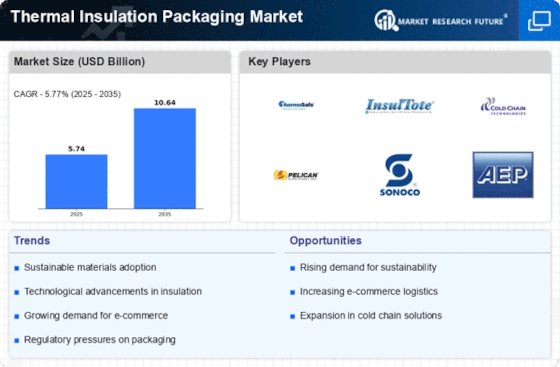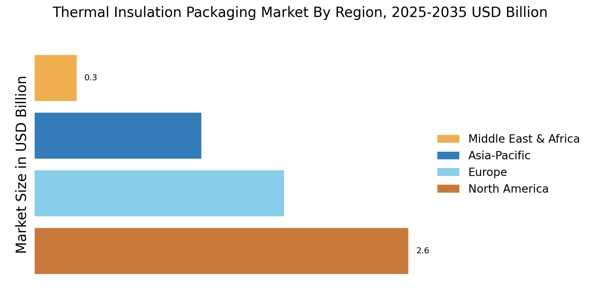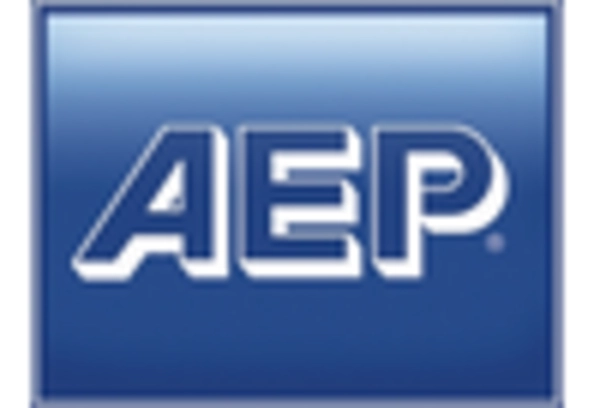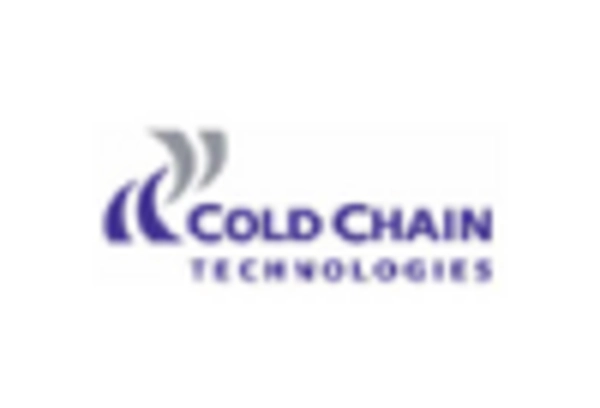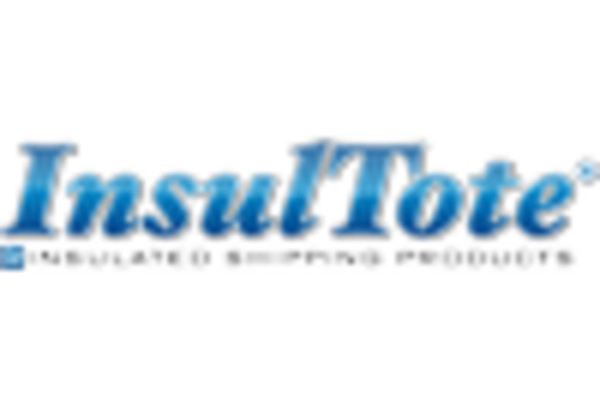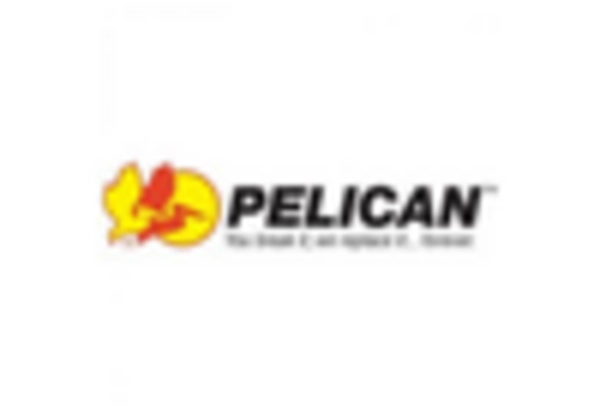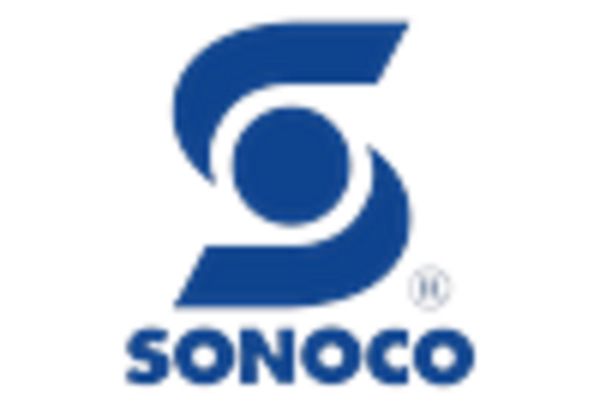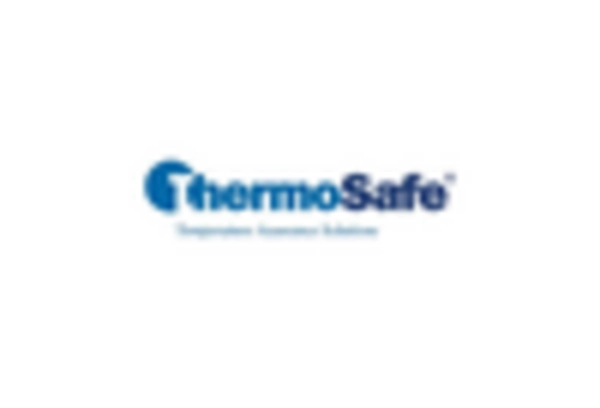Regulatory Compliance and Standards
The Thermal Insulation Packaging Market is significantly influenced by stringent regulatory requirements aimed at ensuring product safety and quality. Various sectors, including food and pharmaceuticals, are subject to regulations that mandate specific temperature ranges during transportation. Compliance with these regulations necessitates the use of advanced thermal insulation packaging solutions. For instance, the FDA and other regulatory bodies have established guidelines that require temperature monitoring and control for sensitive products. As a result, companies are compelled to adopt innovative packaging technologies that meet these standards, thereby driving growth in the Thermal Insulation Packaging Market. The increasing focus on regulatory compliance is expected to propel the demand for high-quality thermal insulation materials, further enhancing market dynamics.
Growth of E-commerce and Online Food Delivery
The Thermal Insulation Packaging Market is poised for expansion due to the rapid growth of e-commerce and online food delivery services. As consumers increasingly prefer the convenience of ordering products online, the demand for effective thermal insulation packaging solutions rises. The e-commerce food sector is projected to grow at a compound annual growth rate of over 10% in the coming years, necessitating robust packaging that maintains product temperature during transit. This trend compels businesses to invest in innovative thermal insulation materials that ensure food safety and quality. Consequently, the Thermal Insulation Packaging Market is likely to benefit from this shift in consumer behavior, as companies seek to enhance their packaging capabilities to meet the evolving demands of the market.
Rising Demand for Temperature-Sensitive Products
The Thermal Insulation Packaging Market experiences a notable increase in demand for temperature-sensitive products, particularly in sectors such as pharmaceuticals and food. As consumers become more health-conscious, the need for effective temperature control during transportation and storage intensifies. According to recent data, the pharmaceutical sector alone is projected to reach a valuation of over 1 trillion dollars by 2025, driving the need for advanced thermal insulation solutions. This trend indicates that companies are increasingly investing in high-performance packaging materials to ensure product integrity and compliance with regulatory standards. Consequently, the Thermal Insulation Packaging Market is likely to witness substantial growth as businesses seek to enhance their supply chain efficiency and maintain product quality throughout the distribution process.
Technological Innovations in Packaging Materials
Technological advancements play a crucial role in shaping the Thermal Insulation Packaging Market. Innovations in materials science have led to the development of advanced insulation materials that offer superior thermal performance and sustainability. For instance, the introduction of bio-based and recyclable insulation materials is gaining traction, aligning with the growing emphasis on environmental responsibility. These innovations not only enhance the thermal efficiency of packaging but also cater to the increasing consumer demand for sustainable solutions. As companies strive to differentiate their products in a competitive market, the adoption of cutting-edge thermal insulation technologies is expected to drive growth in the Thermal Insulation Packaging Market. This trend suggests a shift towards more eco-friendly packaging options, which could reshape market dynamics in the coming years.
Increasing Awareness of Environmental Sustainability
The Thermal Insulation Packaging Market is witnessing a shift towards environmentally sustainable practices, driven by increasing consumer awareness and corporate responsibility. As businesses face pressure to reduce their carbon footprint, there is a growing demand for sustainable packaging solutions that minimize environmental impact. This trend is reflected in the rising popularity of biodegradable and recyclable insulation materials, which are becoming essential components of modern packaging strategies. Companies that prioritize sustainability are likely to gain a competitive edge, as consumers increasingly favor brands that demonstrate environmental stewardship. The Thermal Insulation Packaging Market is expected to evolve in response to this demand, with a focus on developing innovative, eco-friendly insulation solutions that align with global sustainability goals.


